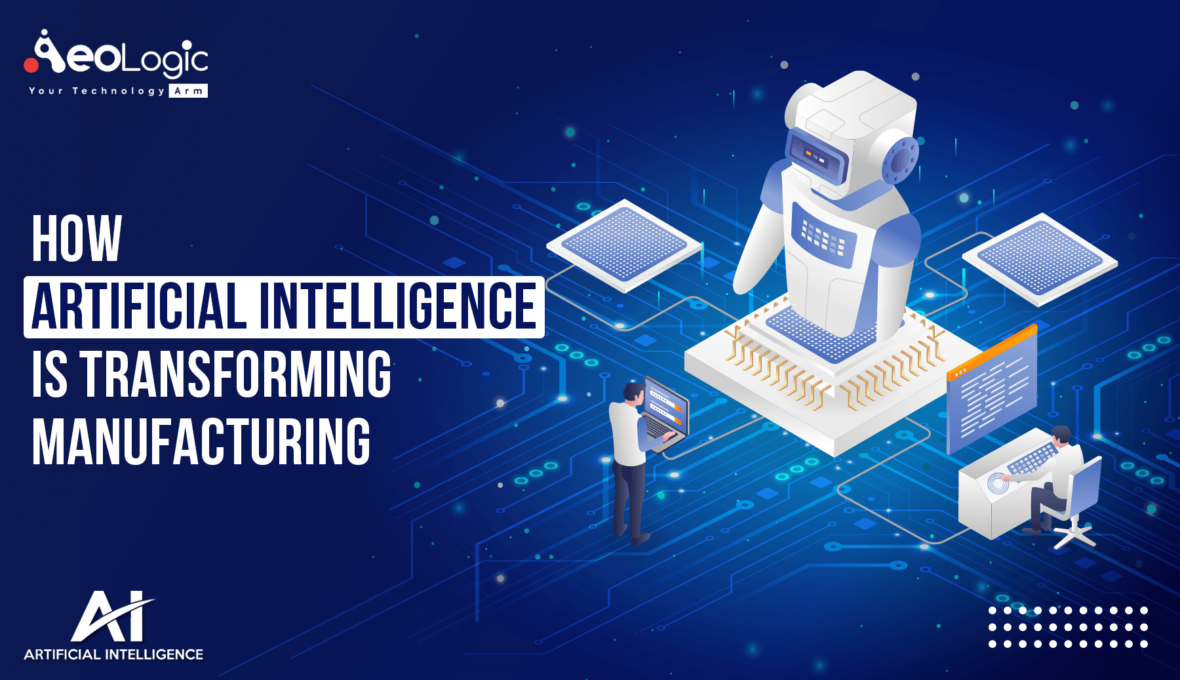Humans are full of astonishing capabilities but still, there can be some circumstances where human eyes fail to see the deviation in the workflow process. In order to avoid these problems, artificial intelligence was introduced. The tasks that are performed by humans often artificial intelligence can do that task with higher accuracy and intelligence. It is a computer software term that processes the information and takes actions according to the objectives set. The insights that get generated with the use of artificial intelligence result in increasing human capabilities significantly. Artificial intelligence is playing a vital role in transforming different industries globally, making the life of the business owner, people, and consumers contented. The insights that come from AI can significantly increase business capabilities. In this blog, we are discuss the impact AI of in manufacturing industry.
Impact of AI in Manufacturing Industry
In every economy manufacturing industry plays an essential role, their contribution to it is remarkable actually it will not be wrong to say that the manufacturing industry completes the paramount circle of society. If one moves a step deeper in the manufacturing industry one will see there are tons and tons of things/steps that has to be done in order to manufacture a certain product.
This work process gets deviated very easily due to human error that can be either a small deviation or a big one. Now here’s the role of Artificial intelligence(AI) comes!
Following are the benefits the manufacturing industry is getting with the use of Artificial Intelligence:
1. The Maintenance:
Time is equivalent to the cost, the more time is taken to fix the breaks the more it will cost to the business. The use of advanced AI algorithms enables to save of the valuable time of the business by briefing technicians ahead of time regarding asset malfunctions
In order to avoid the immense expenses of machinery from ongoing maintenance, the manufacturers have shifted the maintenance from reactive to predictive.
2. Generative Designs Technology:
Artificial intelligence algorithm synchronized with diverse parameters like types of material, production methods, limitation of budget, etc is referred to as generative design software.
This software is used to generate the list of all the configurations possible, based on the refined list it will give the upper hand to the business owner and machine learning will also be used to test the configuration to provide the best option, this results in getting the performance demand met adequately as they’ll able to eliminates human bias and enable a variety of test designs options.
3. Forecast Market Demand:
The use of Artificial Intelligence algorithms enables a better insight into the market demand by accounting for varied parameters like location, weather forecast, social and economic conditions, etc which results in providing a competitive advantage and optimizing the supply chain of manufacturing.
4. To avoid defects avoid the touch:
The fewer the people working in the process line the fewer error will occur, the fewer error occurred the lesser the business will be hampered. Therefore human intervention is been replaced by robotics and automation by many manufacturers, and to ensure its efficiency AI enables to detection of the slightest deviation from the workflow that might be beyond the resolution of the human eye.
Also,
When it comes to the manufacturing industry artificial intelligence transformation is brisking making it more robust like never before. 60% of manufacturers are already using AI as per a survey revealed by MIT.
Conclusion
To conclude we say that it is surely a fact that Artificial Intelligence(AI) is capable of giving supremacy to the business. The insights will be highly accurate, it will brief the technicians ahead of time regarding asset malfunctions in order to avoid the immense expenses of machinery, will give market forecast, and thus artificial intelligence will result in booming the business by giving the business a competitive edge.






